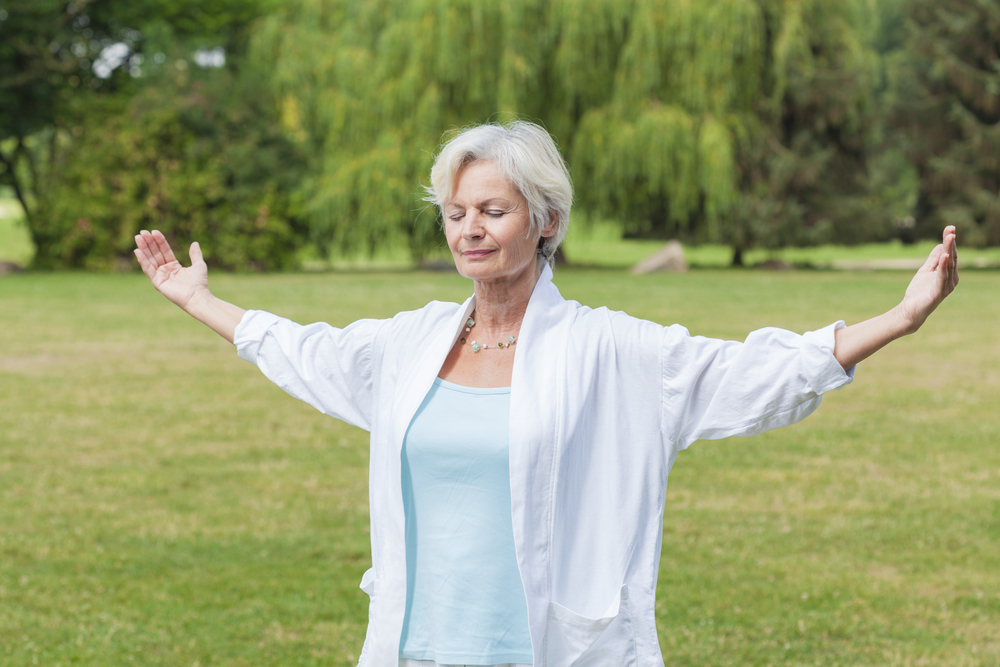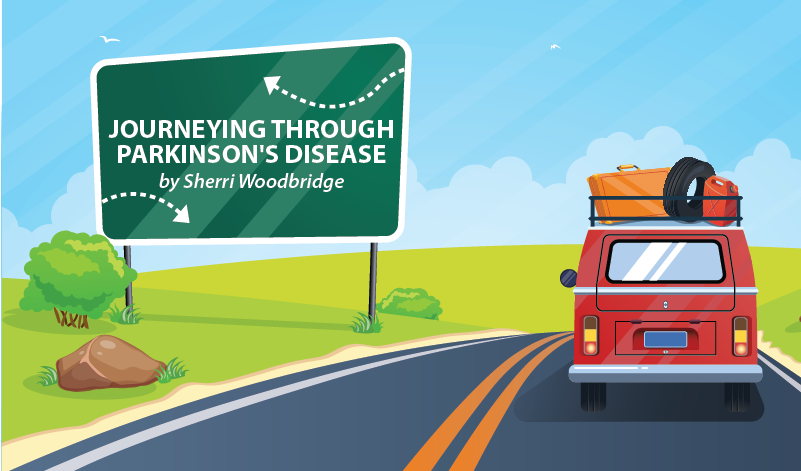Parkinson’s Disease and Tai Chi: Bringing Balance to the Body

Did you know that tai chi is really a great benefit for Parkinson’s disease? It’s becoming more popular and well-known for this disease, but not quite fast enough, I think. For example …
Did you know that falling accidents are the No. 1 cause of emergency room visits for people with PD? Now, think about this for a moment. If you have Parkinson’s, your chances of being in that emergency room are higher than a “normal” person (whatever normal is). Being a person with PD, you lose your footing. You must (more than likely) deal with poor balance quite often due to the imbalance in your brain, which creates the unbalance of your body. (Try saying that three times really, really fast.)
Most of us who have been “around” Parkinson’s disease for any length of time are likely aware of this. What we sometimes don’t know is how does this imbalance/unbalance stuff fit into our lives, and what can we do about it? And there opens the door for those strange movements I saw as a teenager: tai chi.
When researching the top-rated falling accidents related to emergency room visits, I discovered that these accidents are prevalent in skateboarding, being an offensive lineman (not necessarily sent to the hospital for falling in a game), skating with inline skates, and being drunk. Falls due to PD are not in the top five. We are blessed. However, if you want to be able to tell people you fell and don’t want PD to get another point, you might consider saying that you were skateboarding or something equally exciting.
Due to the average age when people develop PD, usually in their 60s and 70s, falling is increased even more. As you age, your reflexes aren’t as sharp as they once were, making it more difficult to correct a fall and stay vertical. It could be due to loss of vision, weakened muscles, or the side effects of medication. (See what I mean about finding a more exciting story? Wouldn’t telling your smart, young doctor that you fell skateboarding make for better conversation than having to tell him your PD medication made you dizzy or your muscles caved in?)
Anyhow — back to tai chi. That weird exercise that has its followers standing like a stork in a slough. Whatever it looks like, it’s making great strides in the PD community for both older folks and younger patients.
According to Bill Douglas of World T’ai Chi and Qigong Day, tai chi movements rotate the human body in about 95% of the ways the body can move when a long form is practiced. This is far beyond what other exercise offers, and, in fact, the closest would be several swimming strokes, which together would only rotate the body in about 65% of the ways it can move. For Parkinson’s sufferers, or anyone for that matter, this would indicate that by “using” 95% of the body’s possible motion several times a week, the possibility of “losing” the ability to do so diminishes accordingly.
Douglas also goes on to say that, “There are many obvious reasons everyone with Parkinson’s should be doing Tai Chi, but it’s the ones that are not yet obvious that may be the most intriguing. One obvious reason is that Tai Chi is the most powerful balance and coordination enhancing exercise known. In many studies at major universities Tai Chi was found to be TWICE as effective in reducing falls as the other balance enhancing exercises being studied. For people with Parkinson’s, who often see their balance deteriorate as their condition progresses, it is unforgivable for them to not be informed of Tai Chi’s potential benefits at the earliest stage possible while their balance is still good.”
Mwezo and Jane Kujiweza Healing Arts in San Jose, California, use tai-chi training to help with many chronic illnesses, including Parkinson’s disease. Mwezo says that, “Tai chi is an internal exercise system that can be performed by anyone regardless of age or physical condition. It combines breathing with slow gentle movements to improve the flow of energy (chi) through the body, to quiet and calm the mind and emotions and to improve overall health and well being.
“Daily Tai Chi practice is extremely helpful to those with chronic ailments and illnesses like cancer, heart disease, stroke, Parkinson’s, Alzheimer’s, osteoporosis, peripheral neuropathy, respiratory problems and irritable bowel syndrome to name a few,” Mwezo says.
***
Note: Parkinson’s News Today is strictly a news and information website about the disease. It does not provide medical advice, diagnosis or treatment. This content is not intended to be a substitute for professional medical advice, diagnosis, or treatment. Always seek the advice of your physician or another qualified health provider with any questions you may have regarding a medical condition. Never disregard professional medical advice or delay in seeking it because of something you have read on this website. The opinions expressed in this column are not those of Parkinson’s News Today or its parent company, BioNews Services, and are intended to spark discussion about issues pertaining to Parkinson’s Disease.







Comments
Jaime
Great article! I loooove tai chi. Anyone interested in this stuff should definitely check out the book Everyday Roots. It teaches you how to replace all the toxic chemicals in your life with healthy organic alternatives. Its completely changed my life and how I feel everyday! :)
Heres a great review of everday roots: http://reggiesreview.weebly.com/everyday-roots-review.html
Todd Heevanlee
Excellent article. As a Tai Chi practitioner and teacher i would love to see more people doing tai chi across the world. You mention several
studies that major universities had undertaken and Tai Chi was found to be TWICE as effective in reducing falls as the other balance enhancing exercises being studied.
It would assist the quality of this article if you provide references to those studies.